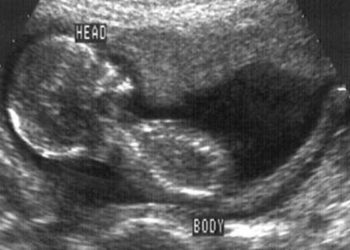Long-term impact of an educational antimicrobial stewardship programme in primary care on infections caused by extended-spectrum β-lactamase-producing Escherichia coli in the community
1. A multi-modal antimicrobial stewardship program in primary care focused on individual educational interviews may improve antibiotic prescription practices and lead to sustained reductions in community-level extended-spectrum B-lactamase-producing Escherichia coli infections.
Evidence Rating Level: 1 (Excellent)
Inappropriate use of antibiotics is a leading cause of antimicrobial resistance. Antimicrobial stewardship programs (ASPs) have been identified as a key aspect of addressing increasing antimicrobial resistance rates. While they have proven utility in the hospital setting, there is little evidence supporting long-term sustainability and effectiveness for these programs in terms of changed prescribing behaviors and decreased resistance rates. Given an increasing proportion of resistant Escherichia coli (E. coli) strains and increasing antibiotic consumption rates, the objective of this quasi-experimental interrupted time series study was to develop a primary care ASP and evaluate its effect on antibiotic use and incidence of resistant E. coli, specifically extended-spectrum B-lactamase-producing (ESBL) strains in urine samples, across Spanish patient populations. Involving multidisciplinary teams of general practitioners, pediatricians, primary care pharmacists and epidemiologists across 214 primary health centers of four Spanish primary health care districts, the program used a combination of web-based material, training courses, seminars and face-to-face sessions. Five educational interventions were implemented: regional and local level educational and program dissemination; open online health courses regarding appropriate antimicrobial practices for local teams; regular clinical sessions to update local protocols for management of common infections; educational interviews with one-to-one interventions; and development of quarterly reports for all participating centers with analytical data for their outcomes, for feedback and benchmarking. The primary outcome was inappropriate antibiotic prescribing through educational one-to-one interviews, deemed as such when one or more of the items of the questionnaire administered during these sessions was answered negatively. Enrolling 1,387 physicians serving a mean population of 1,937,512 adults and children between January 2012 and December 2017, 24,150 educational interviews were conducted as part of the program. Overall, 1,794/4,917 (36.5%) of antibiotic prescriptions were deemed inappropriate in 2014, compared to 1,793/6,6665 (26.9%) in 2017 (p<0.0001). A sustained reduction in use of ciprofloxacin (relative effect -15.9%, 95% CI -23.9 to -8.0) and cephalosporins (-22.6%, 95% CI -35.9 to -9.2) were seen, with an associated sustained increase in amoxicillin use (22.2%, 95% CI 6.4 to 38.0) and fosfomycin (6.1%, 95% CI 2.6 to 9.6%). ESBL E. coli incidence density decreased significantly after the program’s initiation (relative reduction, -65.6%, 95% CI -68.2 to -63.0). Study findings suggest that such ASP programs that employ a peer-to-peer educational interview component may improve antimicrobial use rates and reduce bacterial resistance in community settings, with sustainable clinical benefits over time in terms of resistance rates and prescribing patterns. The implementation of such programs in primary care remains encouraged, with further studies warranted to definitively confirm the value of the individual face-to-face educational interviews.
Click to read the study in Lancet Infectious Diseases
Image: PD
©2019 2 Minute Medicine, Inc. All rights reserved. No works may be reproduced without expressed written consent from 2 Minute Medicine, Inc. Inquire about licensing here. No article should be construed as medical advice and is not intended as such by the authors or by 2 Minute Medicine, Inc.






